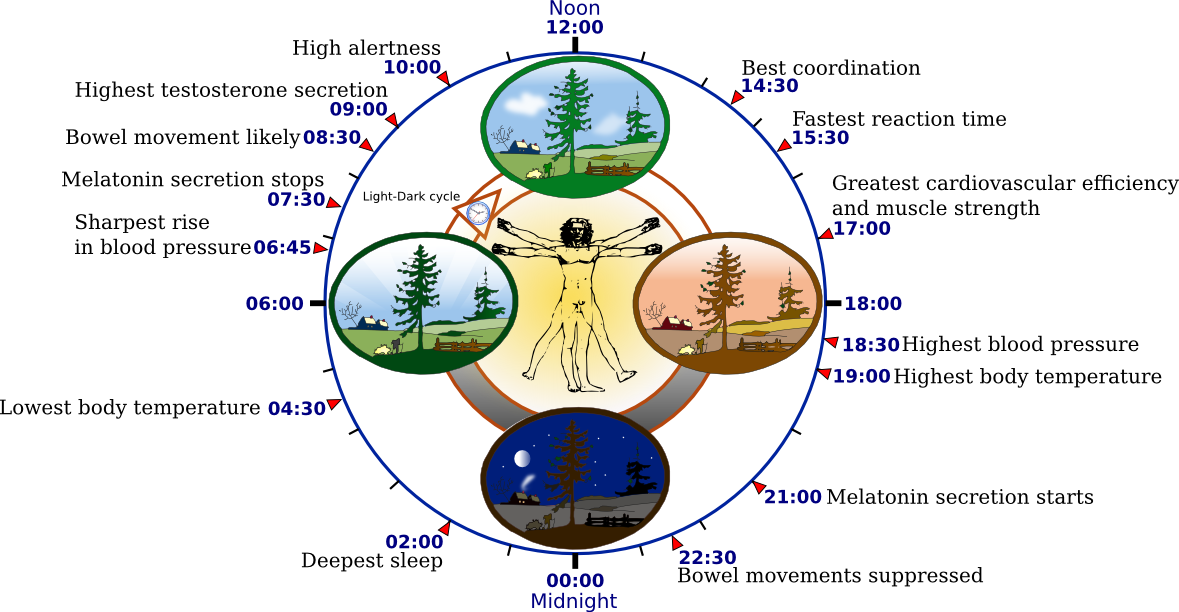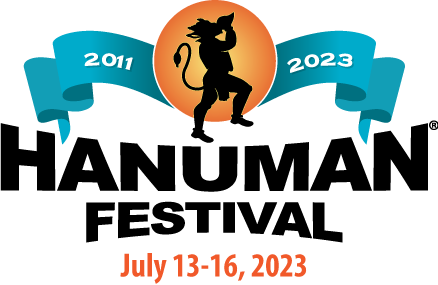
20 May Ayurveda as Circadian Medicine
By: David McConaghay
Ayurveda, the traditional medicine of India, offers a precise science of cycles large and small, dividing each day, year and lifetime according to the qualities of the three doshas.
For example, childhood is the kapha time of life; ages 20 to about 50 are ruled by pitta; and the final third of life is governed by vata. Likewise, the early morning hours from 2am – 6am are vata time; kapha dominates from 6am – 10am; and pitta is active from 10am-2pm, when the cycle starts again with vata.
Modern science has validated the essential premise of this system, conclusively demonstrating that every living organism, from the unicellular to the human, functions according to a biological clock.
A 2001 study by Bjarnason et al led to the conclusion that “the circadian clock may, in part, control the timing of cell-cycle events in tissues undergoing continuous circadian rhythms in proliferation (gastrointestinal mucosa, skin, and bone marrow),” meaning that our ability to digest and eliminate food, and to repair and regenerate skin and bone cells is fundamentally dependent on our synchronized entrainment to the daily rhythms of the world around us.
In 1959, German-born biologist Franz Halberg coined the term “circadian rhythm.” The word circadian is of Latin derivation, combining circa, meaning “around” and diem for “day.” Circadian rhythms describe the pulsing flow of natural phenomena as the Earth makes its daily turn.
It is remarkable that a survey of all the studies on circadian rhythms shows the 24-hour period to be a stable feature, regardless of the type of organism being studied. Deviation from 24-hour periodicity is correlated with unfavorable health outcomes.
The cycle appears to reset every morning when the tide of sunshine comes in. Perhaps it has something to do with the unique fluctuations in the Earth’s electromagnetic field that precede sunrise. Here is a study (by a high school student but published by Stanford) about how radiation from the sun, as it sweeps from East to West across the Earth at sunrise, suddenly ionizes the ionosphere which “causes the signal strength of the [very low frequency] radio waves to decrease in a short period of time.”
Yogis have long known that brahmamuhurta (the two or three hours before sunrise) is the most auspicious time for spiritual practice. The veil is thin in these early morning moments, and it is easier for our human satellite to receive a clear signal. I speculate that this sudden decrease in VLF radio waves is akin to restarting your computer after you’ve downloaded new software. This is one potential mechanism explaining how circadian rhythms actually function.
Jurgen Aschoff (1913-1998) was “one of the founders of the field of chronobiology.” He described the mechanisms of circadian rhythms using the term zeitgeber, examples of which include: changes in light, temperature and atmospheric pressure, eating and drinking patterns, exercise, social interactions, and pharmacological manipulation (drugs).
Of these, he says, “the day-night changes in illumination and temperature are the most important.” As discussed above, this is the cosmic reboot, which remains beyond our individual ability to influence. However, I find it profoundly empowering to realize that all of the other zeitgebers are subject to adjustment according to the application of human intelligence.
Ayurveda as a healing modality relies primarily upon modifications of diet, exercise and sleep, with the occasional help of well-timed plant medicines (drugs). These are the precise zeitgebers determining the quality of our attunement to natural, daily cycles. The science of chronobiology supports the Ayurvedic view that when you perform an action is equally as important as how or what that action is.
For example, people who come to me for Ayurvedic advice often hear me insist that “it is better to go to bed hungry than to wake up full.” For a long time this platitude was based on personal experience and traditional Ayurvedic wisdom. However, it is exciting to discover that there is solid scientific evidence to support this perspective.
In his 2018 book, “Change Your Schedule, Change Your Life,” Dr. Suhas Kshirsagar says that by “about nine p.m., your brain starts releasing melatonin, and your digestion slows to half speed. By ten thirty, your bowel movements are suppressed, and your digestion is at a crawl.”
Digesting food is the most energy intensive thing the body does, transforming not-me food-stuff into bodily-tissue me-stuff. It makes no sense to ask the body to take on this massive project when the whole universe is telling it to be at rest. This is the definition of prajnaparadh, or, “crimes against wisdom,” the cause of all disease, when the human intellect tries to swim upstream.
In this way, the timing of meals may be sabotaging many people’s otherwise excellent attempts to manage their weight. Dr Suhas explains how “…a simple way to trigger obesity in laboratory mice is to wake them up and feed them during their sleep cycle. In fact, mice gain weight within a week if researchers just expose them to low level light when they should be sleeping.”
How many of us are looking at screens right up until bedtime, or even fall asleep with them on? How many sleep with a night light, or in otherwise imperfect darkness? If the circadian rhythms of mice are sensitive enough to be immediately thrown out of sync by the presence of low level light, how might the highly sensitive human organism be affected by the complex flashing of a TV screen, or the ambient light seeping through the windows of a city apartment?
As always, certain factors are more easily modifiable than others. First we must become aware of how the man-made environment may be interfering with our ability to align with natural cycles. From there, simple adjustments can be made. For example, sleeping with an eye mask, or using a blue-light blocker on your computer.
For more detailed, personal advice on how to optimize your daily schedule, please reach out to me at VedaDave.com.
Meanwhile, any day spent at Hanuman Festival (June 14-17, 2018) is obviously guaranteed to be in ideal alignment with the natural rhythms of the cosmos.



No Comments